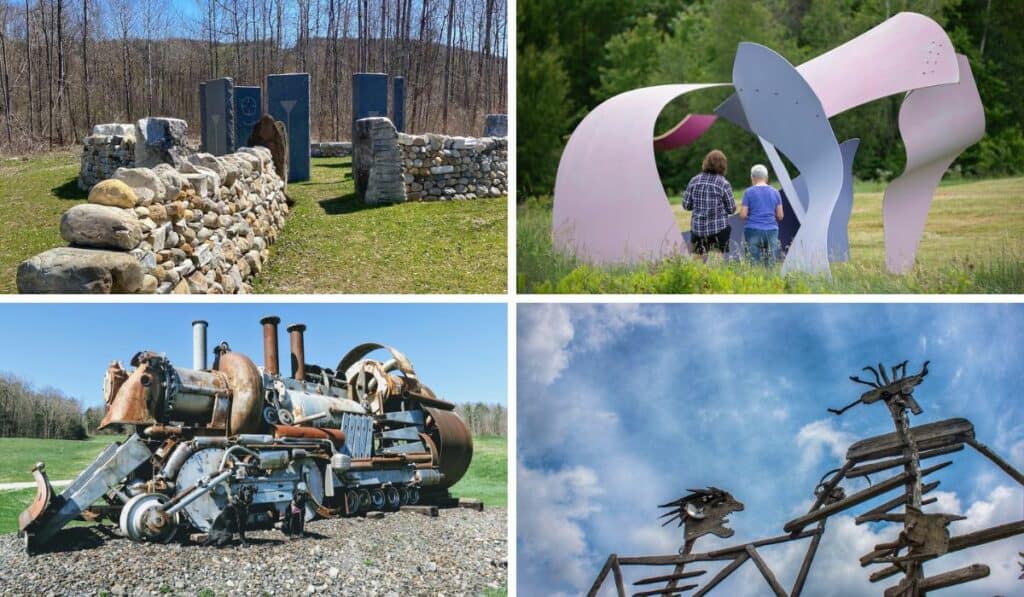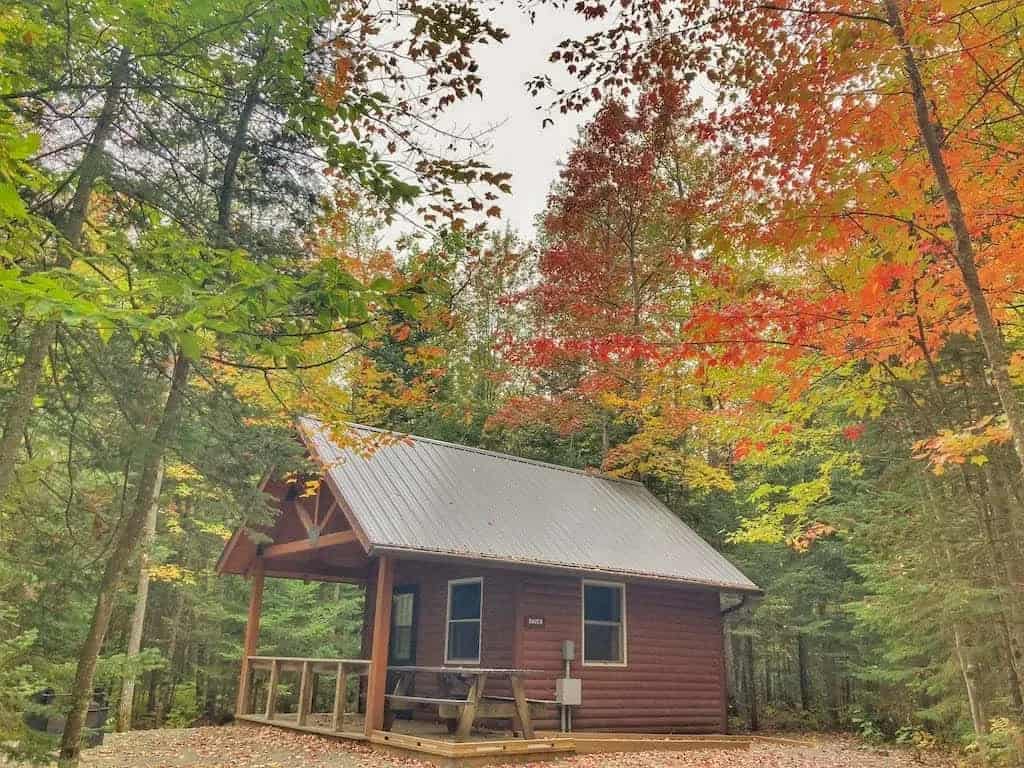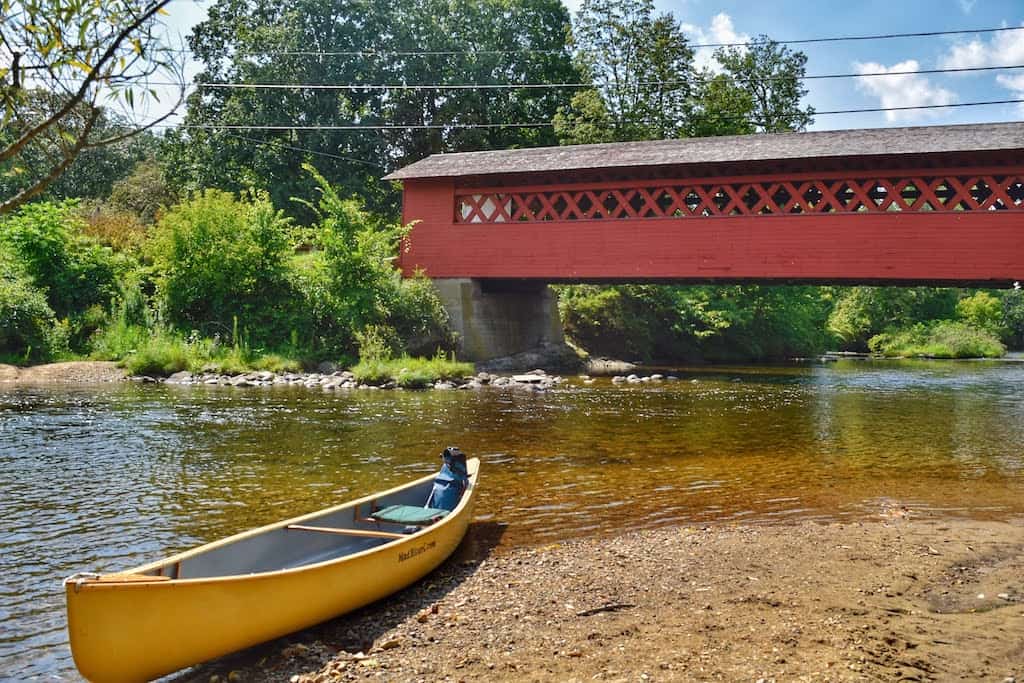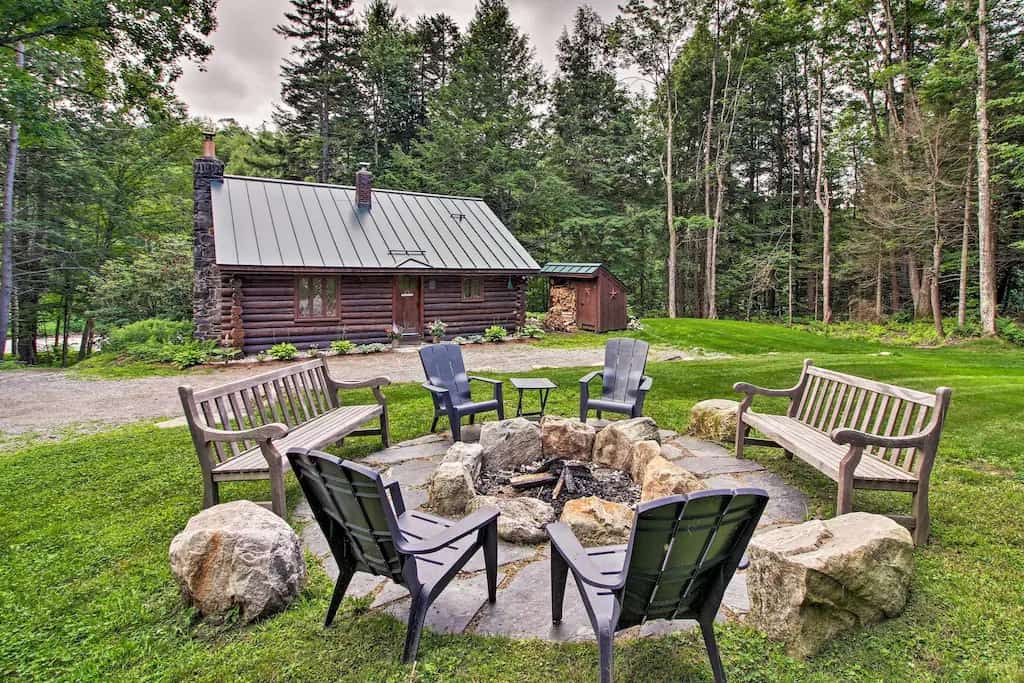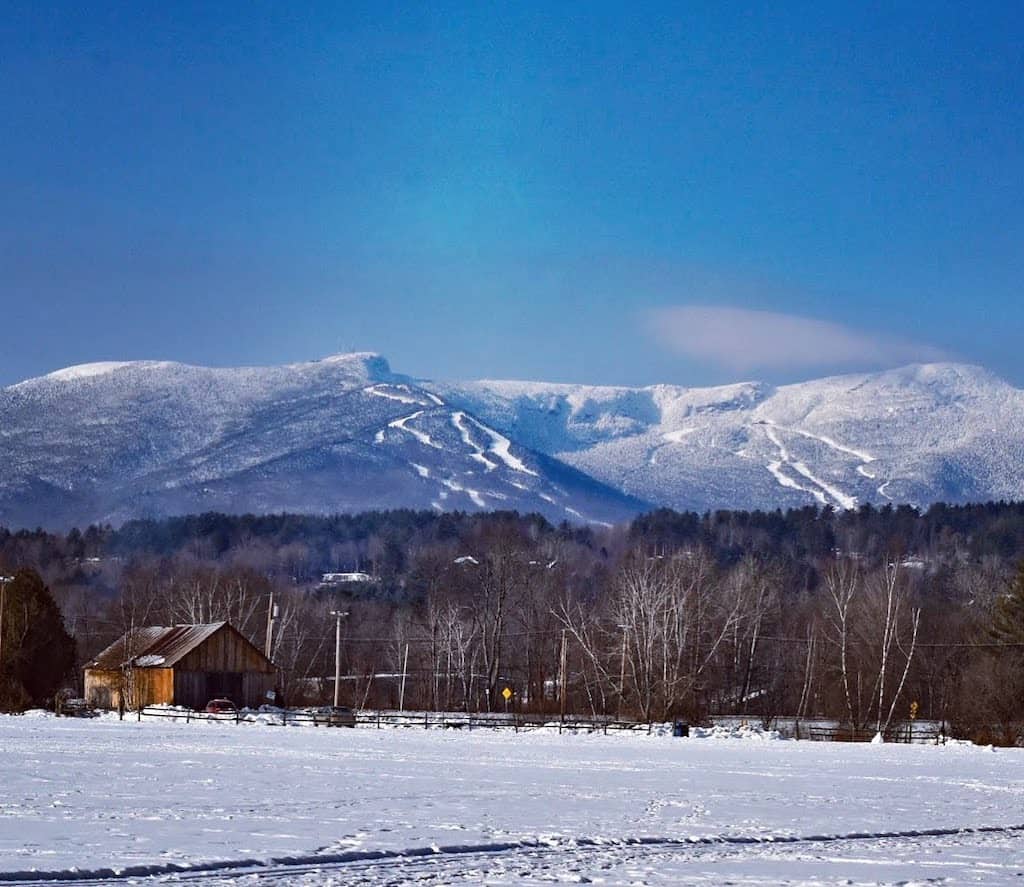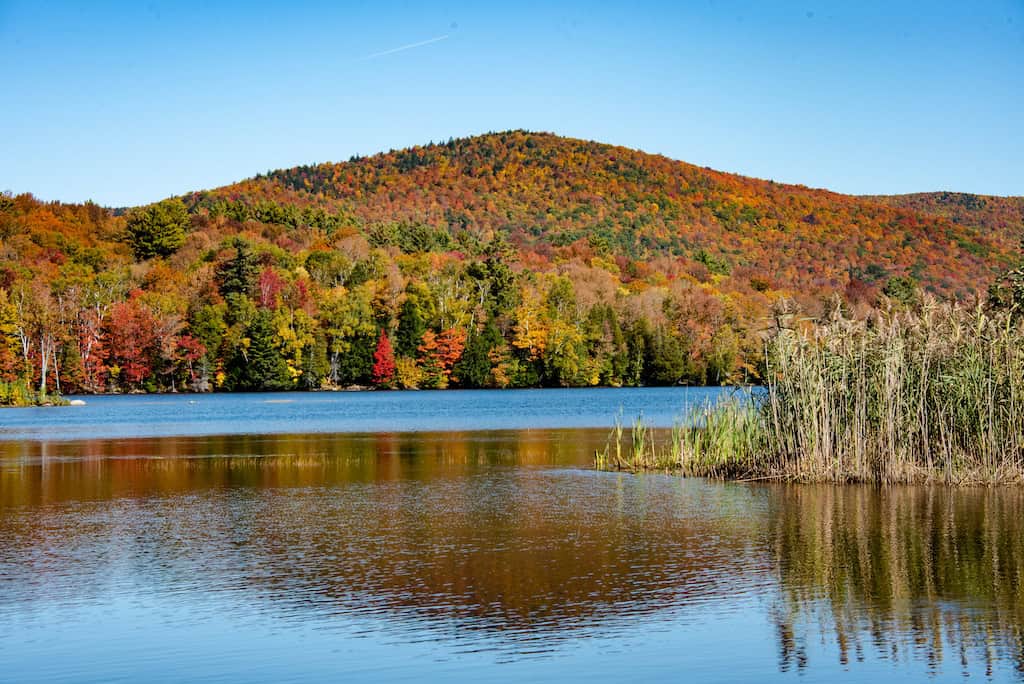Enjoy the Robert Frost Interpretive Trail in Ripton, VT
Note: Advertising is how we keep this site free for you to enjoy, and we earn a commission from affiliate links that may be included in this post. Thank you for supporting Vermont Explored!
Did you know that Robert Frost taught at Middlebury College’s Bread Loaf School of English in Ripton for 42 years? Every summer and fall between 1939 and 1963, he lived and wrote in a small cabin on what was then called the Homer Noble Farm.
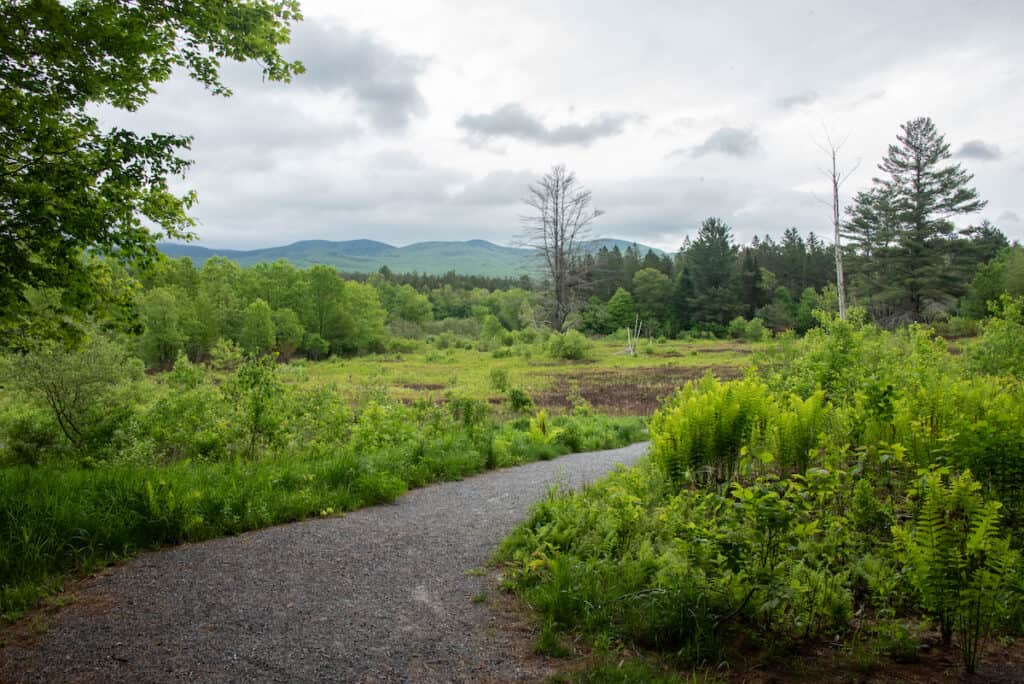
The Ripton property is a National Historic Landmark owned by Middlebury College. It’s open to the public during daylight hours, and while you can see the cabin where Frost lived and wrote, the inside of the cabin is off-limits.
For a glimpse of the beautiful landscape that inspired Robert Frost, head to the nearby Robert Frost Interpretive Trail in the Green Mountain National Forest. Here, you can meander along an easy, universally accessible path, where you’ll find many of his poems mounted on posts along the trail.
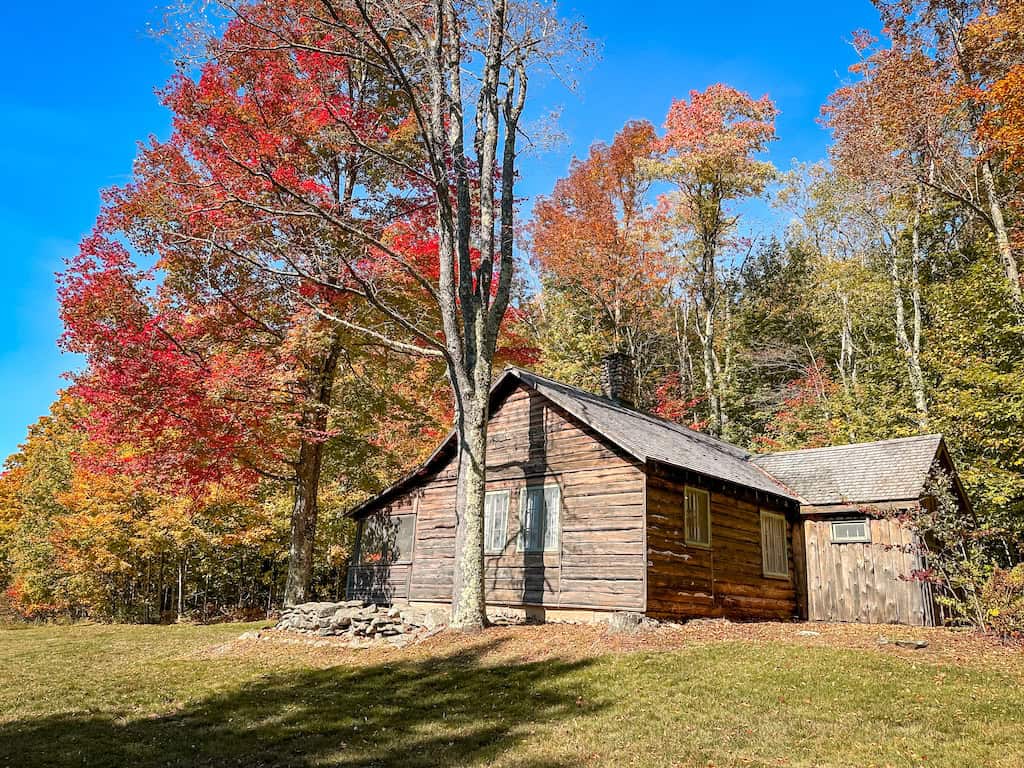
The Robert Frost Trail was dedicated on August 28, 1976. A few years later, the town of Ripton was dedicated as “Robert Frost Country.”
This beautiful trail and the poems posted alongside it pay tribute to Robert Frost, whose poems memorialize the pastoral Vermont that we all know and love.
Quick Trail Details
Length: 1 mile
Difficulty: Easy. The path is universally accessible
Estimated time: 30 minutes
Elevation Range: 1,299 ft. -1,316 ft
Elevation Change: 17 feet
Dogs: Yes, on-leash
Cost: Free
Maps: USGS Middlebury; Green Mountain National Forest
Directions to Trailhead (Google Maps)
Trial guide (AllTrails)
Directions to the Robert Frost Trailhead
From the junction of US 7 and VT 125 just south of Middlebury, head east on VT 125 for 6.2 miles. The trailhead parking area (space for about ten cars) is on the right. GPS coordinates: 43° 57.48′ N, 73° 00.67′ W.
Also Read: Explore Route 125 Through the Green Mountain National Forest
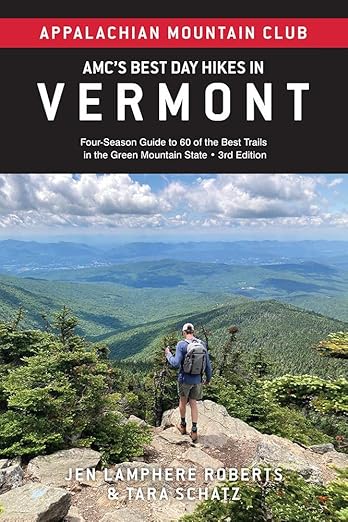
Featured Read: AMC’s Best Day Hikes in Vermont
Written by Tara Schatz and Jen Lamphere Roberts, this fully revised guide includes classic hikes such as Camel’s Hump, Mount Mansfield, and sections of the Long and Appalachian trails, along with new additions Raven Ridge, Killington Peak, Moose Bog, and more.
Whether you’re looking for an exploration of nature or to bag a 4,000-footer, AMC’s Best Day Hikes in Vermont is indispensable.
Walking the Robert Frost Interpretive Trail
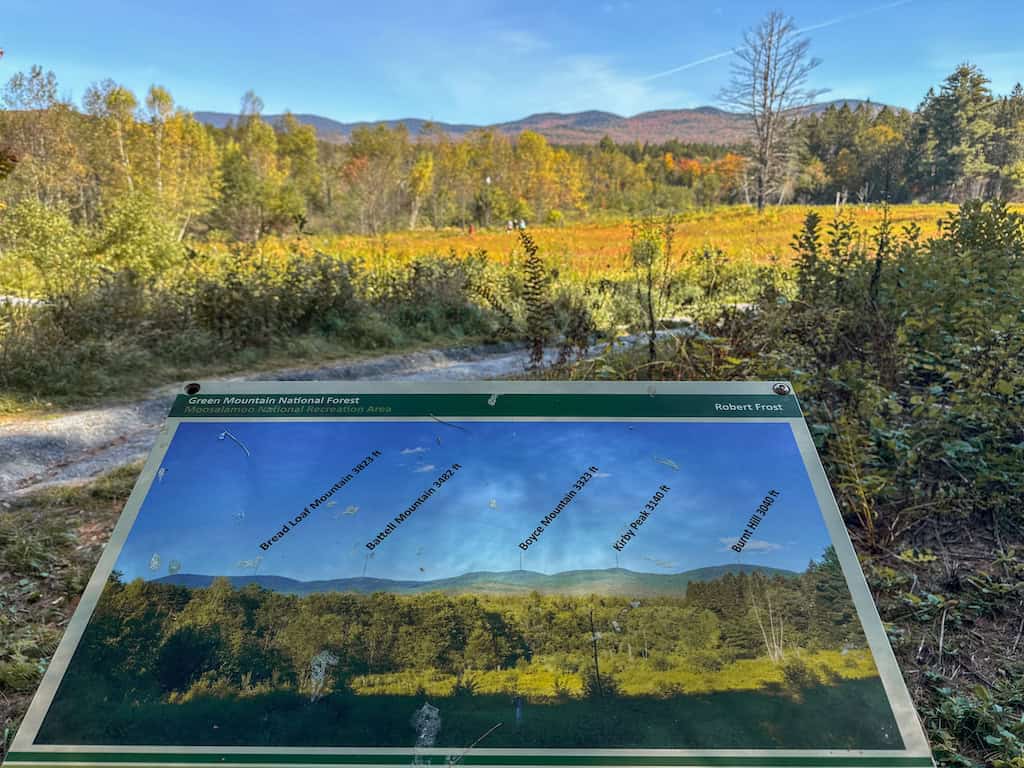
The Robert Frost Interpretive Trail was recently redone to make its entire mile-long length universally accessible. It now features two connected loops that wander through the varied landscapes that inspired Robert Frost.
Several benches along the route encourage you to linger in the landscape, read the poems, and reflect on the beauty of Vermont’s wilderness. Picnic tables near the parking area also encourage you to stay awhile, listen to the birds, and enjoy a snack before continuing on your journey.
The trail also connects to the nearby Water Tower Trails, which are a series of cross-country ski loops for winter adventures. Dogs are welcome on the trail but must be kept on a leash.
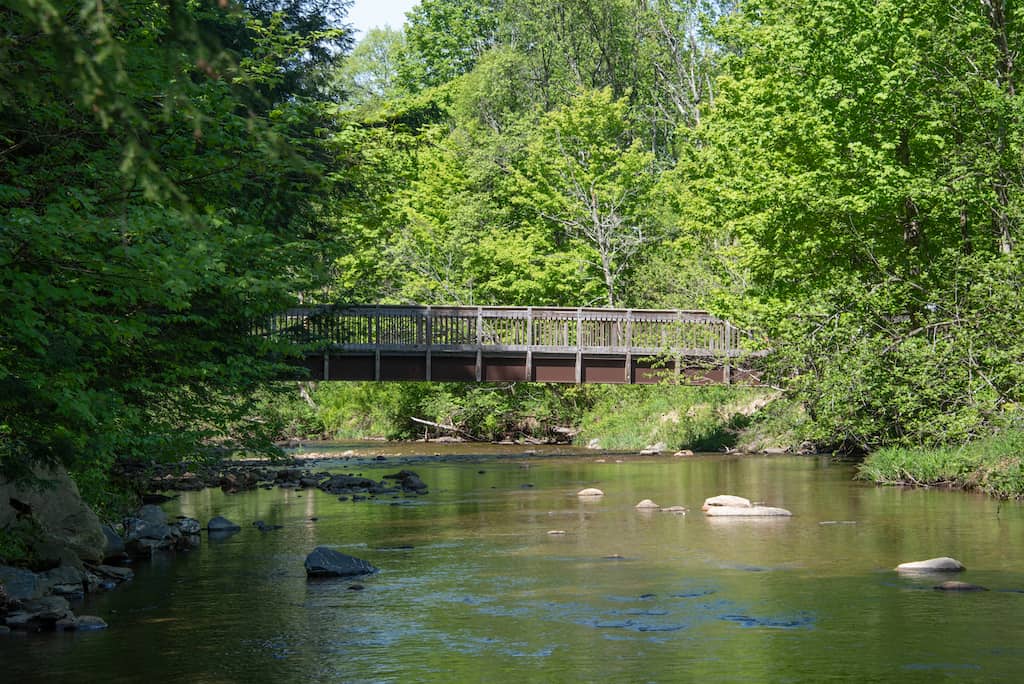
From the trailhead, which contains a small informational kiosk and a vault toilet, go right into the trees along a wide gravel path. The path quickly becomes an elevated boardwalk, crossing a small wetland.
Alder trees love moisture and add color to the winter landscape with their clusters of red berries. The wetland is also a haven for warblers, red-wing blackbirds, and ducks.
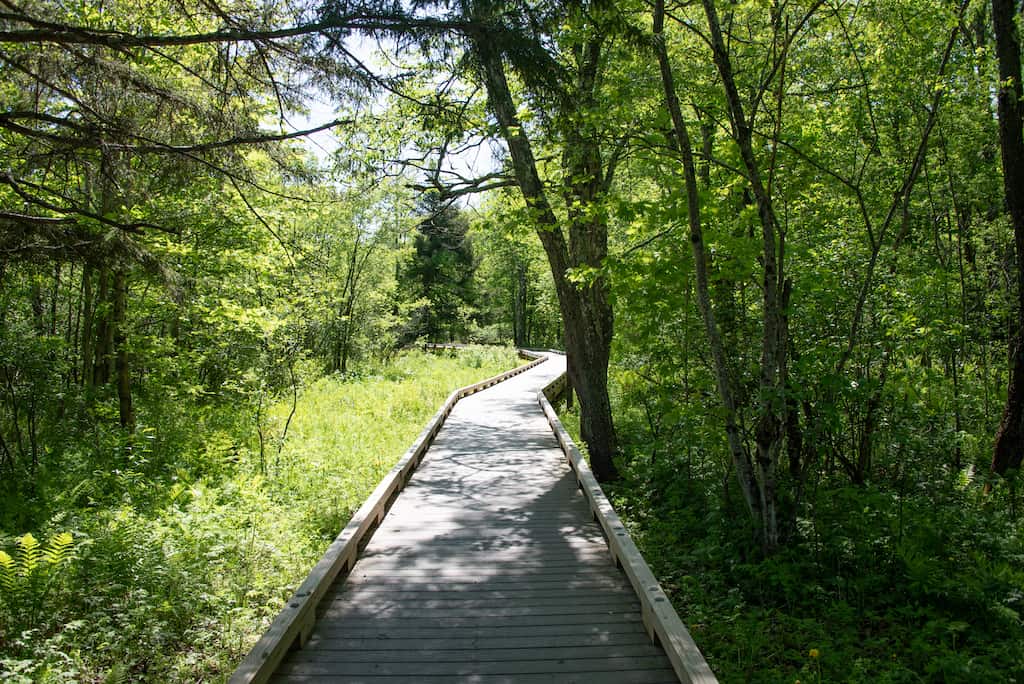
Turn right to cross a footbridge over the South Branch of the Middlebury River. While the trail doesn’t lead directly down to the river, it’s not too difficult to climb down the bank to the water, which is shallow enough for kids and dogs to play in on a hot day.
At the end of the footbridge, the trail enters a dark hemlock grove as the trail curves left. The trail rises gently and passes a bench and a small clearing, where one of Frost’s most famous works, “The Road Not Taken,” is posted.
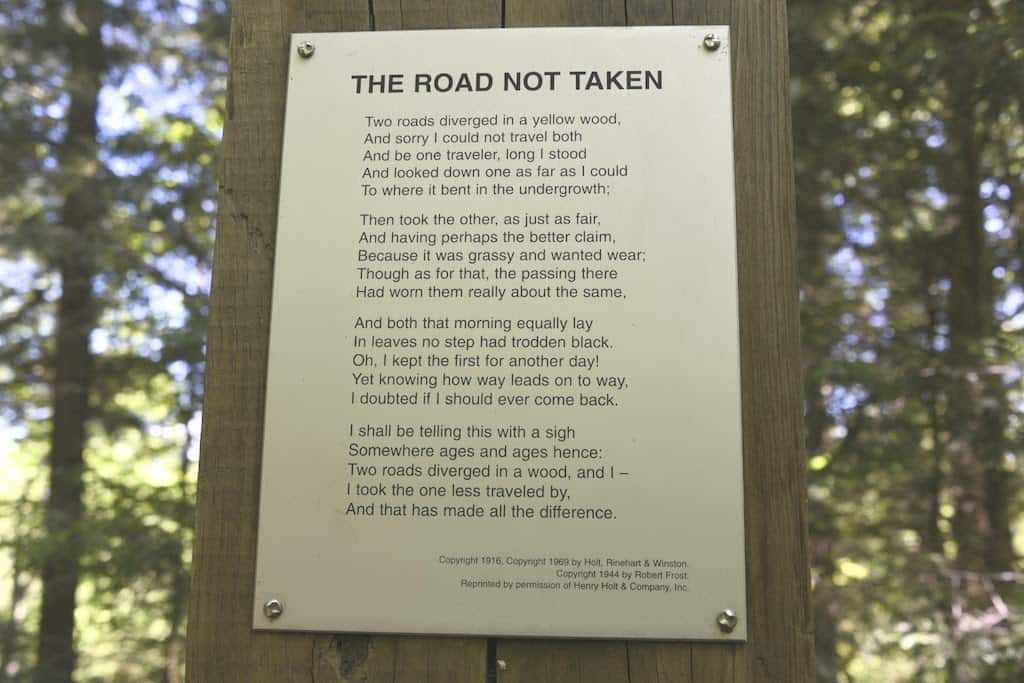
A spur trail to the right leads into the woods and connects to the Water Tower Trails. Feel free to take this trail, which is not accessible to wheelchairs or other mobility devices. Instead, continue straight on the gravel pathway lined with young birch trees.
In the spring, wildflowers spread a carpet beneath the trees — trout lily, trillium, and Dutchman’s breeches. Before long, the young woods start to thin out, and several tall white pines mark the edge of the forest and the beginning of the meadow.
You are now at the eastern edge of the field and the beginning of the second loop.
Follow the path to the right, skirting the meadow. The US Forest Service maintains this area through prescribed burns. Blueberries and huckleberries are plentiful in August, attracting wildlife and humans who come to enjoy the fruitful bounty.
A bench next to a tall white pine tree provides a resting spot to take in northern views of the slope of Breadloaf Mountain (3,835 feet) and the surrounding Breadloaf Wilderness. This is the largest wilderness area in Vermont, protecting nearly 25,000 acres.
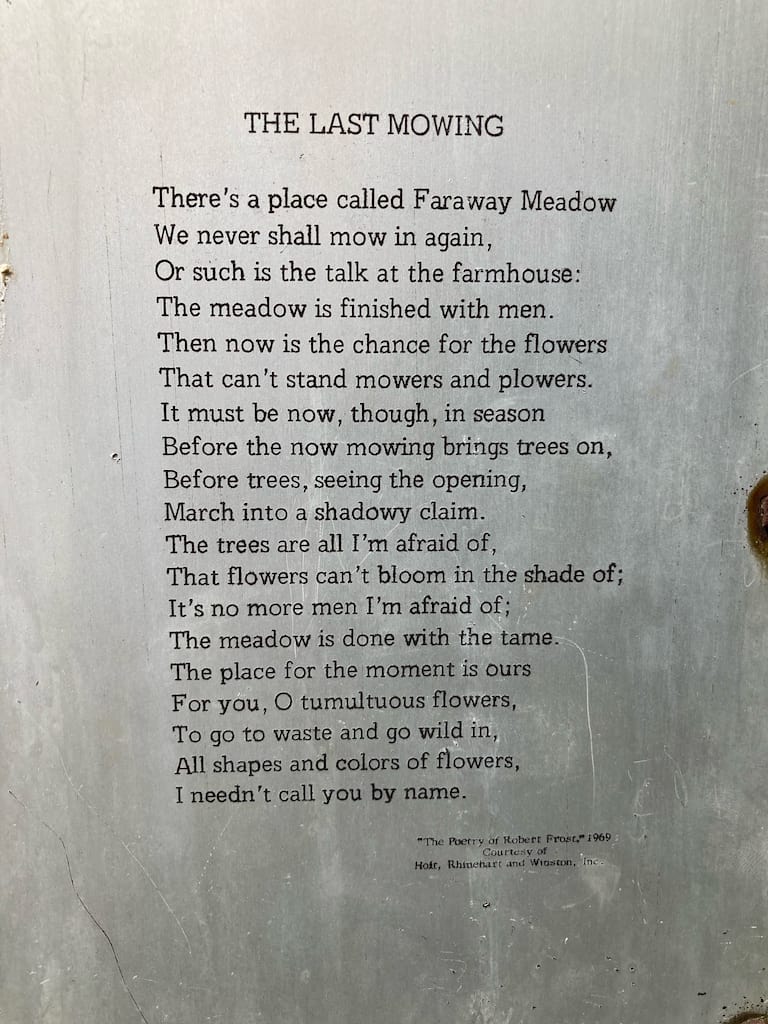
Head downhill through the field, arriving back at the beginning of the loop. Go right, retracing your steps to the shorter hiking loop on the other side of the river. Bypass this loop and follow the signs back to the parking area.
Insider tip: Vermont is notorious for its spotty cell service, and GPS isn’t always reliable. We recommend purchasing a copy of the Delorme New Hampshire/Vermont Atlas & Gazetteer. This awesome atlas includes every road and trail in Vermont and is indispensable for exploring Vermont’s back roads and best-kept secrets!
Exploring Robert Frost’s Place in Vermont
On January 20, 1961, Robert Frost became the unofficial first Poet Laureate of The United States. He was named Poet Laureate of Vermont in July of the same year.
After visiting the Robert Frost Interpretive Trail, drive a short distance west on VT 125 to the Robert Frost Wayside. From the picnic area, you can walk to the cabin where Frost spent much of his time writing.
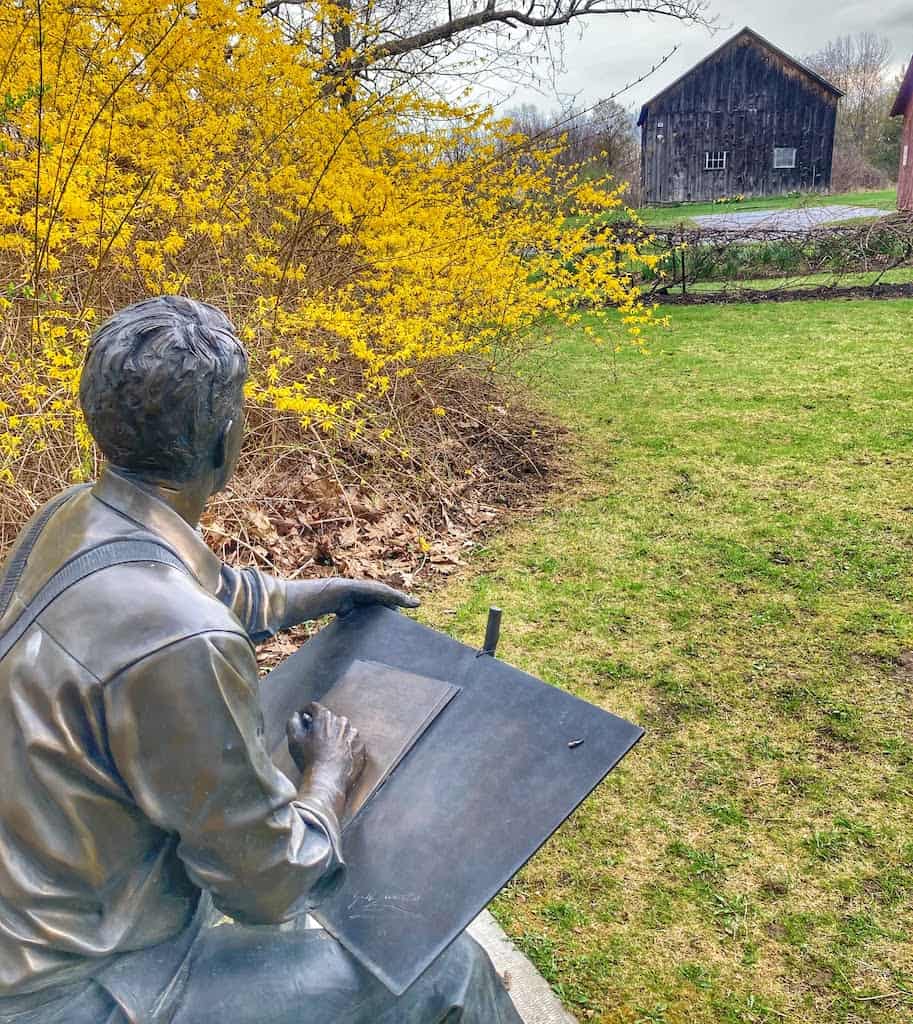
Drive south a couple of hours to Shaftsbury, Vermont, where you can visit the Robert Frost Stone House Museum. Frost lived there with his wife, Elinor, from 1920 to 1929. The Stone House is owned by Bennington College and houses a small museum with walking trails.
Robert Frost is buried behind the Old First Church in Bennington. You can visit his grave, as well as several remarkable old gravestones dating back to the Revolutionary War. Read more about the best things to do in Bennington while you’re in the area.
Follow us on social media for more day trips in Vermont!
Pin for later?
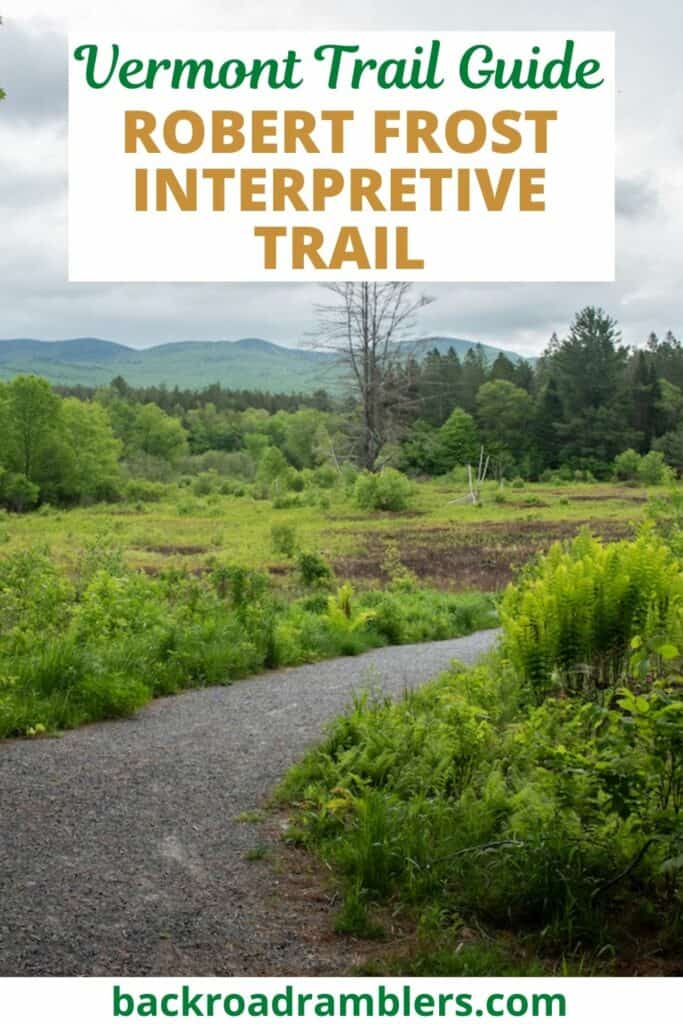
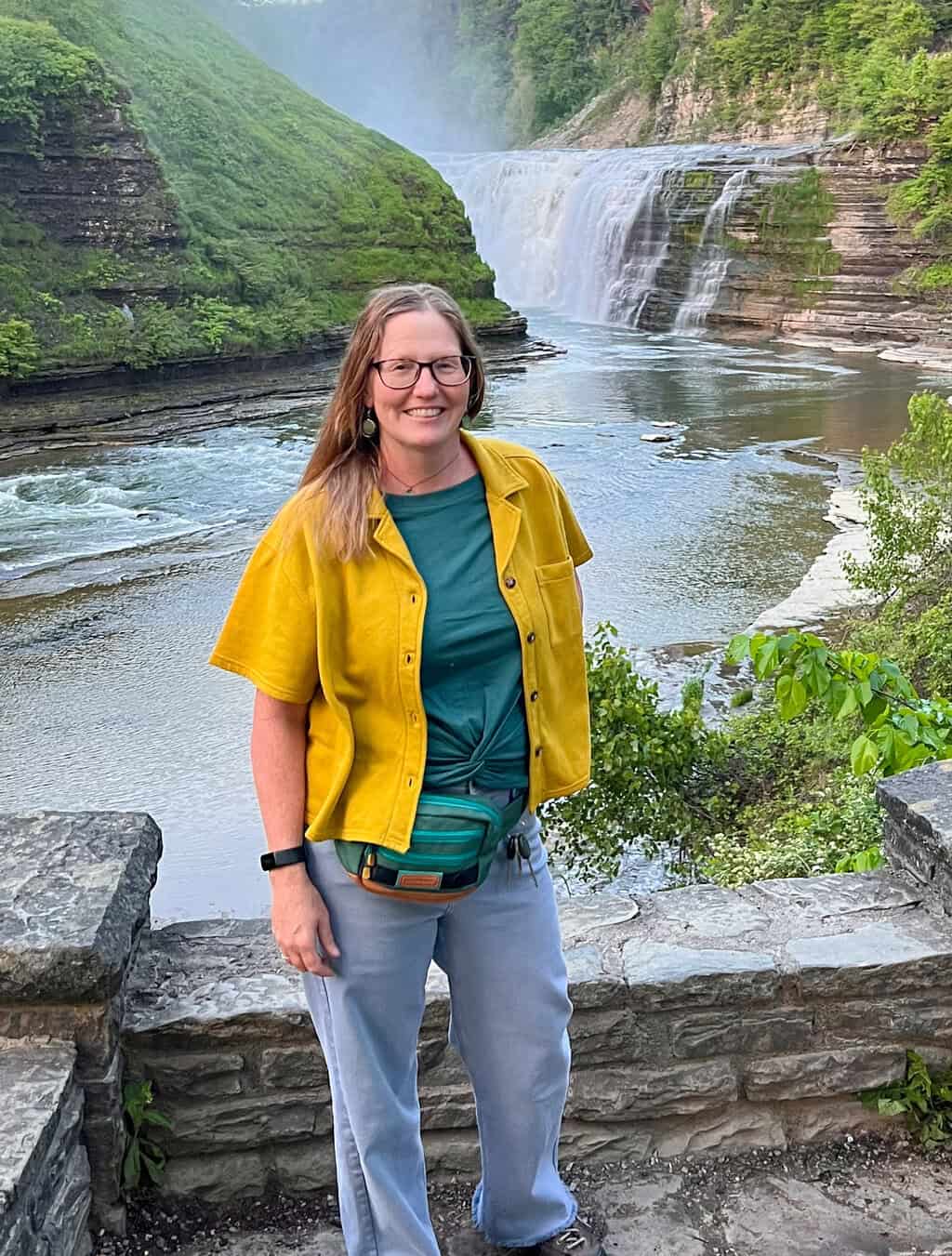
Tara Schatz is a freelance writer and the founder and editor-in-chief of Vermont Explored and Back Road Ramblers, an American road trip blog. She is also the co-author of the 3rd edition of AMC’s Best Day Hikes in Vermont, released in May 2023, and the author of 100+ Wonderful Ways to Experience Vermont.

